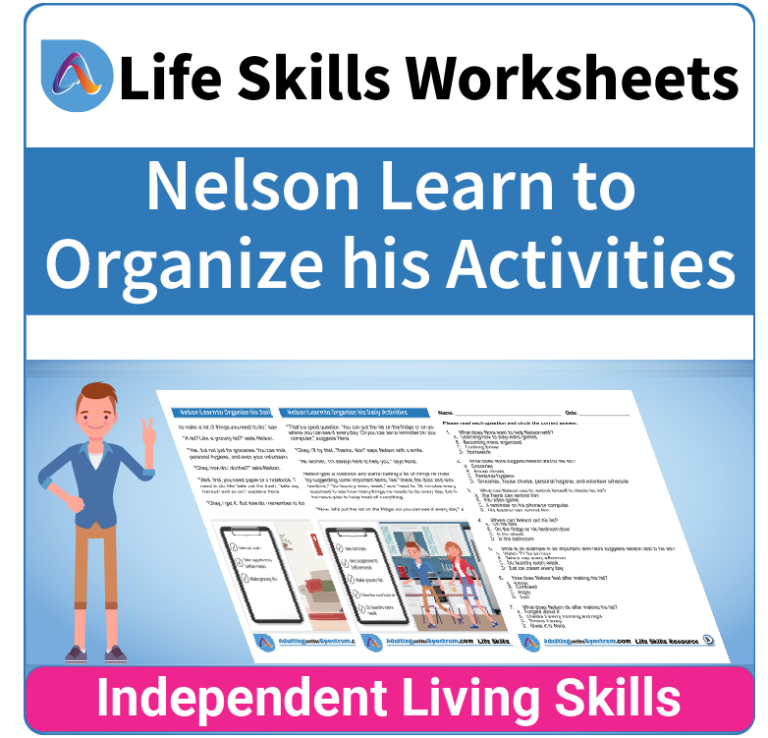Advocating for Accessible Community Events during the Summer
With summer right around the corner, many families are excited to participate in various community events and activities. However, as parents of individuals with autism, we often encounter barriers to inclusion. In this post, we’ll delve into the importance of advocating for accessibility in community events and share practical tips to ensure our kids can fully participate and enjoy their summer experiences.
Understanding the Importance of Inclusion
Inclusion isn’t just a buzzword; it’s a fundamental right. Accessible events create opportunities for socialization, skill development, and overall well-being. By advocating for inclusion, we’re enhancing our kids’ lives and fostering a more accepting and diverse community.
Identifying Barriers to Accessibility
Before we can effectively advocate for accessibility, we must identify the barriers our sons or daughters may face. These barriers can range from physical obstacles like a lack of ramps or elevators to sensory challenges such as loud noises or bright lights. Understanding these barriers empowers us to address them proactively.
Researching Inclusive Events
Start by researching inclusive summer events in your community. Look for organizations, businesses, or community centers that prioritize accessibility. These events may include sensory-friendly movie screenings, adaptive sports programs, or art classes designed for individuals with disabilities.
Engaging with Event Organizers
Once you’ve identified potential events, don’t hesitate to contact the organizers. Share your interest in attending with your son or daughter and inquire about the event’s accessibility features. This proactive communication allows organizers to better understand participants’ needs and make necessary accommodations.
Advocating for Sensory-Friendly Environments
Sensory overload can be overwhelming for some autistic individuals, especially in crowded or noisy environments. Advocate for sensory-friendly accommodations such as quiet zones, noise-canceling headphones, or dimmed lighting. These adjustments can significantly improve our child’s ability to participate in summer events.
Promoting Social Stories and Visual Supports
Social stories and visual supports are invaluable tools for many autistic individuals as they prepare for new experiences. Create a personalized social story or visual schedule outlining what to expect at the event, including transportation, activities, and sensory strategies. This visual support can reduce anxiety and increase comfort levels.
Encouraging Peer Support and Buddies
Peer support can significantly enhance the inclusivity of summer events for some autistic individuals. Encourage your son or daughter to attend events with a trusted friend or buddy who understands their needs and can provide support when necessary. This sense of companionship can boost confidence and enjoyment.
Educating Staff and Volunteers
Many event organizers may lack awareness or understanding of autism. Take the opportunity to educate staff and volunteers about autism, sensory sensitivities, and communication preferences. By fostering a culture of inclusion, we can create a more welcoming environment for all attendees.
Providing Accessible Transportation Options
Accessible transportation is crucial to ensuring our kids can participate in summer events. Advocate for transportation options that accommodate individuals with mobility challenges or sensory sensitivities. This may include accessible parking, shuttle services, or public transportation routes with disability-friendly features.
Celebrating Neurodiversity
Embrace and celebrate neurodiversity within your community this summer. Encourage event organizers to incorporate inclusivity that reflects the diversity of attendees, including those with autism. We can create a more inclusive and supportive environment by promoting acceptance and respect for all individuals.
Getting Involved in Event Planning
Consider getting involved in event planning committees or advisory boards dedicated to accessibility and inclusion. Your firsthand experiences and perspective as a parent are invaluable in shaping future events. By actively participating in the planning process, you can help ensure that accessibility remains a priority.
Sharing Success Stories and Feedback
As you attend inclusive events with your son or daughter, remember to share your positive experiences and feedback with event organizers. Highlight what worked well and offer suggestions for further improvement. Your insights can inspire positive changes and encourage ongoing commitment to accessibility.
Building Community Partnerships
Forge partnerships with local businesses, organizations, and advocacy groups to strengthen support for inclusive events. Collaborate on initiatives to raise awareness, provide resources, and promote accessibility throughout the community. Together, we can create a more inclusive and welcoming environment for all families.
Empowering Self-Advocacy Skills
Empower your son or daughter to advocate for their own needs and preferences. Encourage self-expression, self-awareness, and self-advocacy skills to navigate social situations with confidence and independence. By promoting self-advocacy, we empower children to participate actively in their communities and exercise autonomy.
Continuing the Conversation
Inclusion is an ongoing journey that requires continuous effort and commitment from all community members. Keep the conversation going, share resources, and collaborate with others to champion accessibility and inclusion year-round. Together, we can create a more inclusive and equitable society where everyone feels valued and respected.
Let’s work together to create an environment where everyone feels included and welcome in community events. It’s up to each one of us to make it happen! By understanding barriers, engaging with event organizers, promoting sensory-friendly accommodations, and empowering self-advocacy, we can ensure that our kids can fully participate and thrive in summer activities. Let’s work together to make this summer truly inclusive for everyone.
Parenting autistic teenagers can be challenging, but with the right insights and resources, you can make a big difference in their lives. We hope this post has given you the confidence to continue your journey. “Adulting on the Spectrum” strives to empower autistic individuals by equipping them with essential life skills and encouraging them to pursue their dreams of independence.






